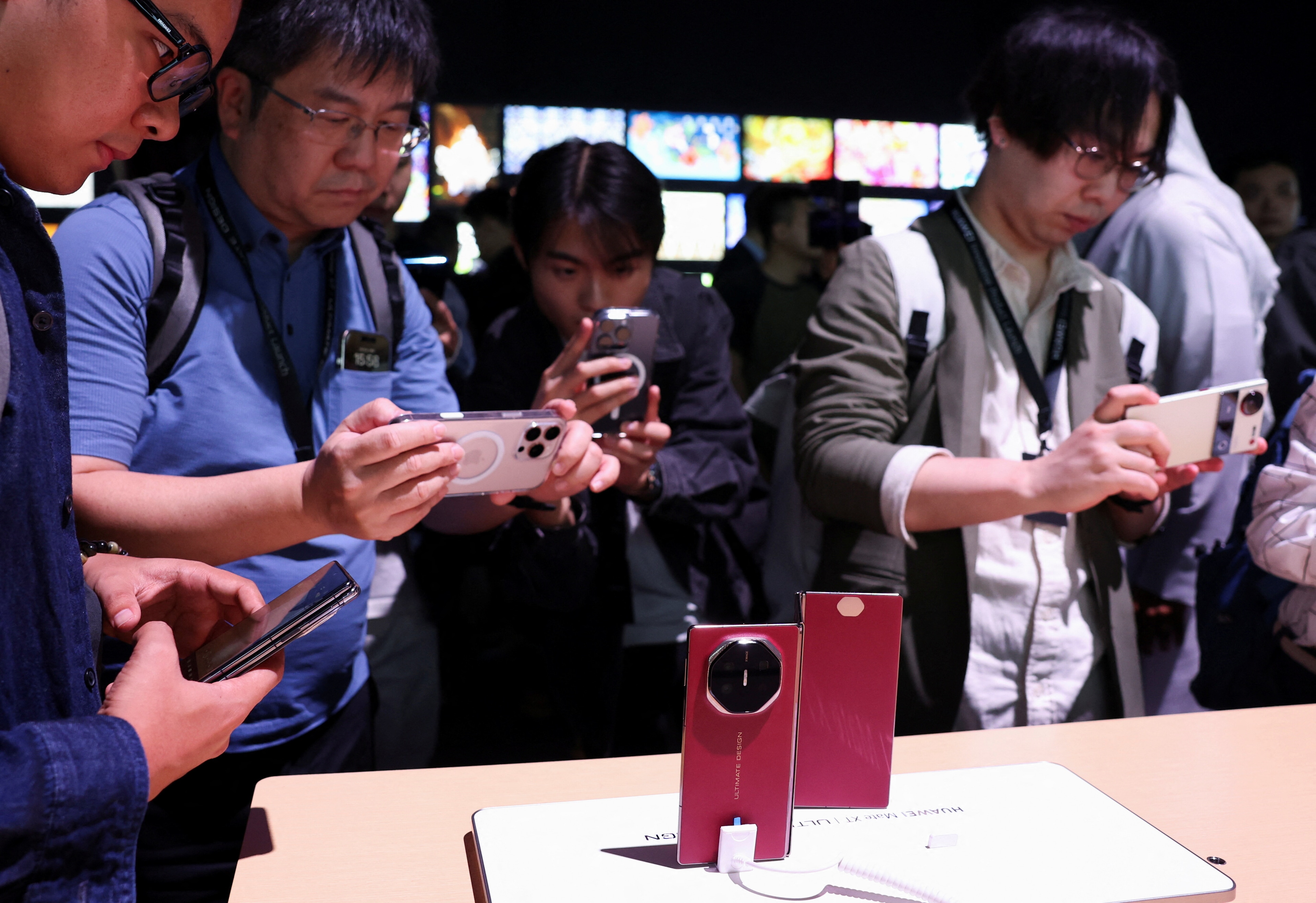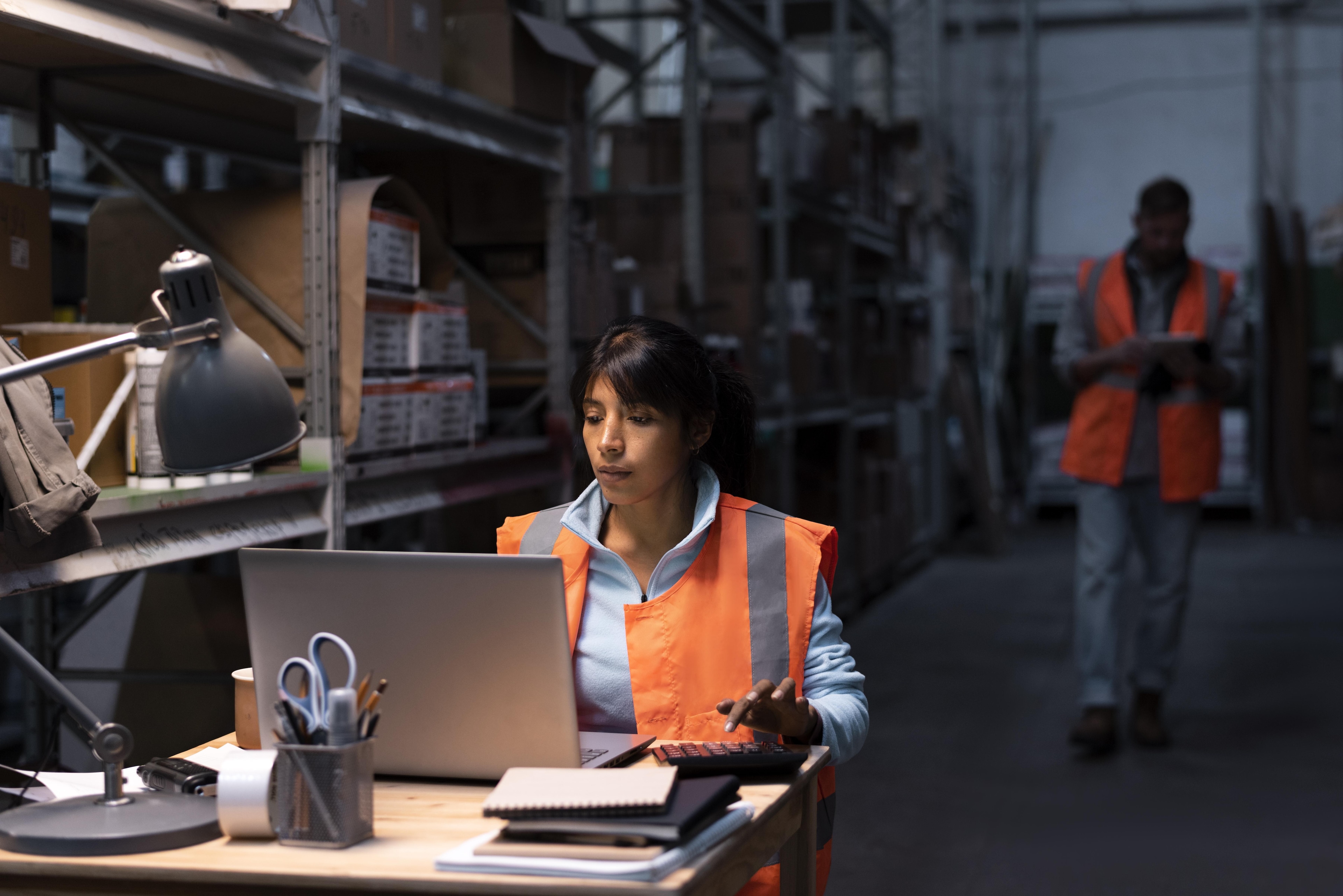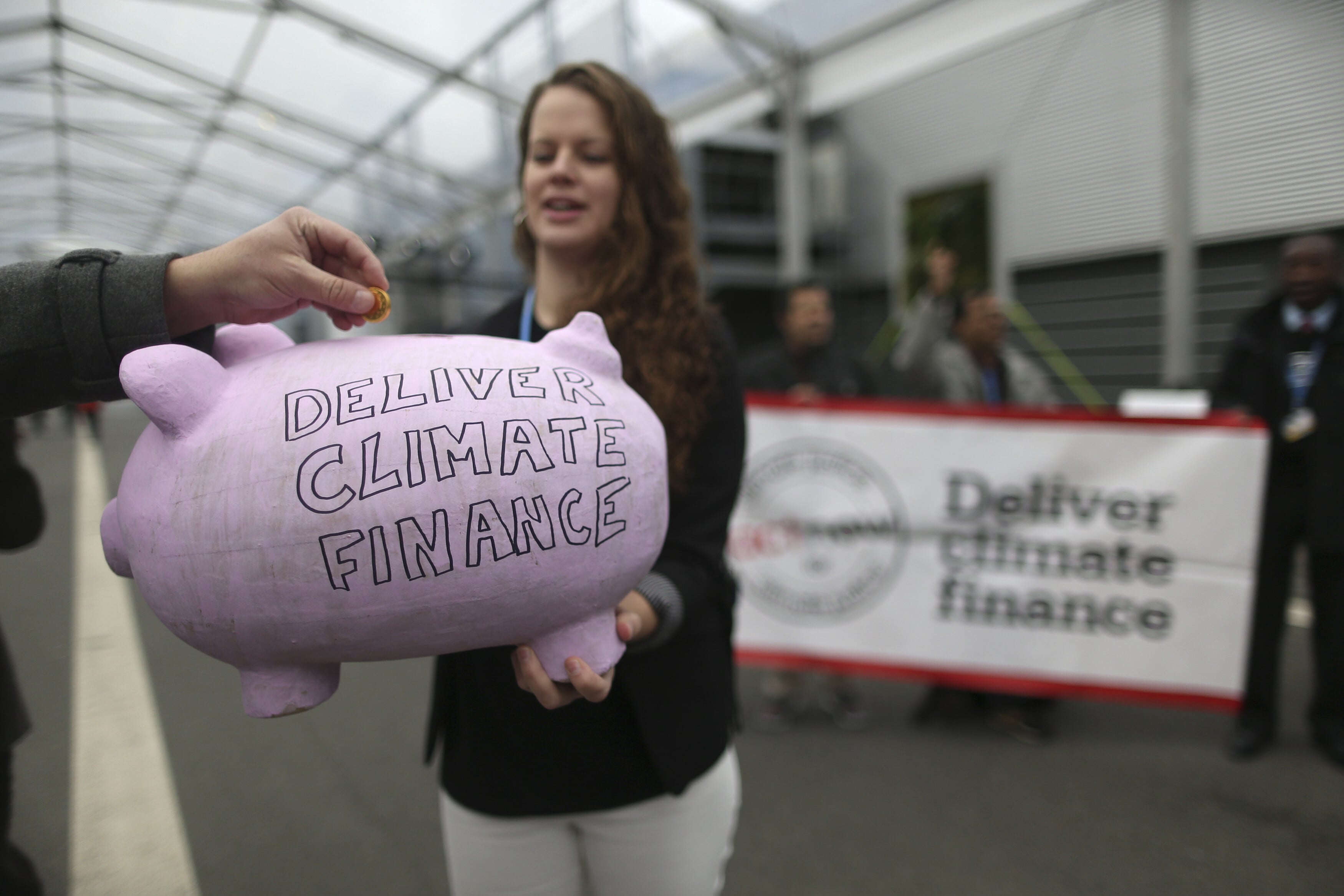10 Chinese companies to watch – and what they reveal about China’s economy

These ten Chinese companies offer a ground-level view of how the economy is evolving under pressure.
Image: REUTERS/Hasnoor Hussain
- These ten Chinese companies offer a ground-level view of how the economy is evolving under pressure.
- From batteries to toys, these firms capture the breadth of China’s industrial reach.
- As leaders gather in Tianjin for 'Summer Davos' (the Annual Meeting of the New Champions 2025), these are the names shaping the real economy behind the big themes that are in focus this week.
From the global leader in EV batteries to a toy company capturing the imaginations (and wallets) of China’s youth, here are 10 companies that help explain the current state of China’s economy from the ground up.
Together, they offer a snapshot of how China is adapting to a new geopolitical context. Reflecting deeper shifts, they highlight a move toward green technology, domestic innovation, and platform-driven services. But they also expose tensions between scale and sustainability, openness and control, ambition and risk.
CATL (宁德时代): 'The undisputed global champion of EV battery manufacturing'
Status: Public (SHE: 300750, soon HKEX listing)
Founded: 2011 by Robin Zeng
Headquarters: Ningde, Fujian province
Main Businesses: Lithium-ion batteries for EVs and energy storage, battery materials, battery management systems
Why It Matters:
Based in Ningde in the north of coastal Fujian province, CATL is the undisputed global champion of EV battery manufacturing, with roughly a 38% global market share. Despite price pressures, its profits rose thanks to scale and raw material cost reductions. Its expanding international footprint now includes major factories in Europe (in both Hungary and Spain) and a planned Hong Kong listing to fund further expansion.
What You Probably Didn’t Know:
About 86% of CATL’s revenue now comes from battery sales, with energy storage systems making up most of the rest; only ~1.5% comes from raw mineral sales. The firm’s cell-to-pack tech boosts energy density by 15–20% and simplifies production — a key efficiency driver.
Think of it as…
ASML’s technical indispensability meets Schneider Electric’s energy expertise, paired with the scale-and-speed playbook of Alibaba, engineered in Fujian for a decarbonized world.
Envision Energy (远景能源): 'Listed in Fortune's Change the World 2024'
Status: Privately held
Founded: 2007 by Lei Zhang
Main Businesses: Smart wind turbines, energy storage systems, green hydrogen solutions, AIoT-powered batteries, and energy management software
Why It Matters:
Shanghai-based Envision Energy has emerged as a global leader in green technology, providing comprehensive renewable energy, including wind, energy storage, and hydrogen. In 2024, the company secured a record 30.6 GW of wind turbine orders, leading among Chinese OEMs in international markets with over 10 GW in orders. Envision's rapid expansion and technological advancements have garnered international recognition, including being listed in Fortune's "Change the World" 2024, placing it at the forefront of the green energy transition.
What You Probably Didn’t Know:
Beyond its core energy solutions, Envision manages the Envision-Hongshan Carbon-Neutral Fund and owns the Envision Racing Formula E team, which clinched the Teams' Championship in 2023. The company also operates EnOS™, an AIoT (“Artificial Intelligence of Things”) operating system managing over 100 GW of energy assets globally. Envision's commitment to sustainability is evident in its achievement of carbon neutrality across global operations by 2022, with a goal of reaching net-zero emissions throughout its value chain by 2028.
Think of it as…
GE Renewable Energy's technological prowess meets Tesla's innovation in energy storage, combined with a global footprint, all driven by a mission for a sustainable future.
Haier (海尔集团): 'A global IoT appliance leader'
Status: Public (SSE: 600690), also listed in Hong Kong
Founded: 1984 by Zhang Ruimin
Headquarters: Qingdao, Shandong province
Main Businesses: Smart appliances, IoT, home automation solutions, digital factories
Why It Matters:
The oldest company on our list, Qingdao-based Haier revolutionized Chinese entrepreneurship — famously when its CEO used a sledgehammer to destroy a defective fridge in the year of its founding. In the 40 years since, it’s grown from a white goods company known mainly for its dormitory refrigerators into a global IoT appliance leader, integrating AI across its platforms and operating micro-factories in over 20 global markets while targeting zero-carbon operations.
What You Probably Didn’t Know:
Haier spun off nearly a dozen micro-factories: small, flexible production units focused on local demand and customization. In Qingdao, one “dark factory” — so-called because there’s no need for lights in this almost fully robotic operation — produces washing machines and fridges autonomously, with no more than three human overseers.
Think of it as…
GE Appliances meets Bosch’s precision engineering, with a dash of Netflix’s AI-driven personalization and modular, user-centric flair.
Huawei (华为): 'AI ambition of a Google, built by a Shenzhen mindset'
Status: Privately held, employee-owned
Founded: 1987 by Ren Zhengfei
Headquarters: Shenzhen, Guangdong province
Main Businesses: ICT infrastructure, consumer devices, cloud and AI, digital power, automotive solutions
Why It Matters:
Despite U.S. sanctions, Shenzhen-based Huawei bounced back in 2024. A revived smartphone business (surpassing Apple domestically), cloud computing growth, and entry into new energy vehicles highlight a company reinventing itself across multiple fronts. It has become the core pillar of China’s efforts to attain self-sufficiency in semiconductor manufacturing in what has long been a highly globalized supply chain.
What You Probably Didn’t Know:
Huawei reinvested 180 billion RMB — over a fifth of its revenues — into R&D in 2024 and directed over half of its 113,000-strong R&D workforce to future tech. Its R&D spend broke a company record in 2024.
Think of it as…
Cisco’s telecom DNA meets Samsung’s device ecosystem, with the AI ambition of a Google, all built by a Shenzhen mindset committed to independence and innovation.
JinkoSolar (晶科能源): 'Holds over 462 patents related to TOPCon technology'
Status: Public (NYSE: JKS)
Founded: 2006 by Xiande Li
Headquarters: Shanghai, China
Main Businesses: Photovoltaic modules, solar cells, wafers, energy storage systems
Why It Matters:
Shanghai-based JinkoSolar is one of the world's largest and most bankable solar module manufacturers. In 2024, the company shipped a record 92.9 GW of modules, maintaining its position at the forefront of the global solar industry. JinkoSolar's extensive global footprint includes manufacturing bases in China, Vietnam, the United States, and Malaysia, enabling it to serve over 160 countries.
What You Probably Didn’t Know:
JinkoSolar has been a pioneer in the development of N-type TOPCon (Tunnel Oxide Passivated Contact) solar cells, achieving mass production efficiency of approximately 26.5% by the end of 2024. The company holds over 462 patents related to TOPCon technology, underscoring its commitment to innovation in high-efficiency solar solutions.
Think of it as…
Nvidia’s relentless R&D engine meets Toyota’s precision manufacturing culture, with the global supply chain reach of Flextronics and a hint of SoftBank-style ambition.
LONGi Green Energy Technology (隆基绿能科技股份有限公司): 'A leading player in the global photovoltaic (PV) industry'
Status: Public (SSE: 601012)
Founded: 2000 by Li Zhenguo
Main Businesses: Monocrystalline silicon wafers, solar modules, BC (back contact) solar cells, green hydrogen solutions, solar power plant development.
Why It Matters:
LONGi is the world’s largest manufacturer of monocrystalline silicon wafers and a leading player in the global photovoltaic (PV) industry. Ultra-pure slices of a single crystal of silicon, monocrystalline silicon wafers convert sunlight into electricity more efficiently than other types because their uniform structure lets electrons flow more easily. The company is at the forefront of advancing solar technology, particularly with its development of high-efficiency BC (back contact) solar cells.
What You Probably Didn’t Know:
In 2024, LONGi invested ¥5.014 billion in R&D, amounting to 6% of its annual revenue, and held 3,342 authorized patents, including over 400 related to BC cells and modules. The company’s HPBC 2.0 modules achieved a 97% cell yield rate and are being shipped at scale across multiple continents.
Think of it as…
The Intel of solar meets Apple’s innovation drive, with the global reach of Siemens, all navigating the fraught geopolitics of a rapidly evolving renewable energy landscape.
Meituan (美团): 'China's indispensable lifestyle services platform'
Status: Public (HKEX: 3690)
Founded: 2010 by Wang Xing
Main Businesses: On-demand delivery (food, groceries, retail), hotel and travel bookings, bike and e-moped sharing, restaurant booking, power bank rentals, and AI-driven logistics
Why It Matters:
Meituan, headquartered in Beijing and founded by serial internet entrepreneur Wang Xing, has evolved into China's indispensable lifestyle services platform, processing nearly 22 billion orders in 2023 — almost 700 per second. Its dominance in food delivery, coupled with ventures into grocery retail, travel, and local services (what in China are known as O2O, or “online-to-offline,” services), positions it as a central player in China's digital economy. The company's international KeeTa platform — the name comes from “Cheetah” — is now in numerous markets outside of China and has enjoyed particular success in Saudi Arabia.
What You Probably Didn’t Know:
In 2024, Meituan's autonomous delivery vehicles completed over 4.9 million orders, while drones handled 450,000 deliveries, signaling its entry into China’s “low-altitude economy.” The company also acquired AI startup Light Year for $281 million, aiming to bolster its technological capabilities. Additionally, Meituan has committed to providing social security benefits to its delivery riders, reflecting a focus on workforce welfare.
Think of it as…
Amazon's logistics prowess meets Uber Eats' delivery network, with Airbnb's travel services, Fandango’s movie ticketing reach, and a dash of Google's AI innovation — all on steroids, tailored for the Chinese market, and going global fast.
Pop Mart (泡泡玛特): 'Redefined the collectible toy market'
Status: Public (HKEX: 9992)
Founded: 2010 by Wang Ning
2024 Revenues:
¥13.04 billion (~$1.8 billion USD)
Main Businesses: Designer toy collectibles, IP development, global retail and vending machine networks
Why It Matters:
Pop Mart has transformed the "blind box" concept into a global phenomenon, captivating consumers with its mystery-packaged designer toys. This isn’t your daddy’s gumball machine — though the “kidult” culture it’s rapidly fostering may well mean your daddy’s a customer too. The Beijing-based company's innovative approach to retail, combining physical stores with automated vending machines, has redefined the collectible toy market. In 2024, Pop Mart's revenue more than doubled, driven by the soaring popularity of its plush toy line, especially the ferocious yet cuddly Labubu character.
What You Probably Didn’t Know:
Labubu, a character designed by Hong Kong illustrator and designer Kasing Lung, became a cultural icon in 2024, contributing over ¥3 billion to Pop Mart's revenue. The character's unique design and storytelling resonated globally, leading to collaborations and appearances in various media.
Think of it as…
An early sign of a Chinese soft power surge, where Disney's storytelling prowess meets Supreme's hype-driven releases, with the tech-savvy distribution of Amazon and the cultural impact of TikTok.
Seres Group (赛力斯): 'Backed by Ford-level industrial muscle'
Status: Public (SSE: 601127, filing soon in HKEX)
Founded: Originally 1986; EV revival under that brand by Zhang Xinghai
Headquarters: Chongqing, China
Main Businesses: New energy vehicles (Seres, AITO), combustion engines, auto parts
Why It Matters:
Chongqing-based Seres surged from obscurity to challenge Tesla and BMW in China with its AITO series — EVs powered by Huawei’s autonomous tech. With backing from the municipal government of Chongqing, Seres’s 2024 sales topped 386,900 units (that’s an increase of 268% YoY), positioning it as one of only four profitable NEV automakers globally.
What You Probably Didn’t Know:
Seres is intertwined with Huawei’s HarmonyOS-based HIMA alliance, licensing its AITO brand for maximum branding alignment. It also expanded overseas, targeting markets like Nepal and emerging regions.
Think of it as…
A scaled-up Rivian with Huawei’s self-driving brain, backed by Ford-level industrial muscle, and a bit of GM’s playbook in emerging markets.
Xiaohongshu (小红书 / RedNote): 'Seamlessly blends user-generated content with e-commerce'
Status: Privately held
Founded: 2013 by Charlwin Mao Wenchao and Miranda Qu Fang
Main Businesses: Social media, e-commerce, influencer marketing, AI-powered search, cross-border retail
Why It Matters:
Xiaohongshu, known internationally as RedNote, has evolved from a niche shopping guide for fashionable Chinese urbanites into China's premier lifestyle platform. With over 300 million monthly active users, it seamlessly blends user-generated content with e-commerce, creating a unique ecosystem of livestreaming e-commerce where community engagement drives purchasing decisions. In 2024, the Shanghai-based company's profitability soared, doubling net profits to over $1 billion, signaling its robust monetization strategy and potential for a significant IPO.
What You Probably Didn’t Know:
In early 2025, Xiaohongshu experienced a surge of international users, dubbed "TikTok refugees," following uncertainties over the future of TikTok's operations in the U.S. This unexpected influx prompted the company to accelerate its global expansion plans, including launching an overseas e-commerce pilot program targeting markets like the U.S., Hong Kong, and Macau. Additionally, the platform introduced "Diandian," an AI-powered search tool, enhancing its capabilities as a lifestyle search engine.
Think of it as…
Instagram's visual storytelling meets Pinterest's discovery engine, combined with Amazon's e-commerce prowess, all tailored for China's digitally native consumers and now eyeing the global stage.
Accept our marketing cookies to access this content.
These cookies are currently disabled in your browser.
Related topics:
Contents
CATL (宁德时代): 'The undisputed global champion of EV battery manufacturing'Envision Energy (远景能源): 'Listed in Fortune's Change the World 2024'Haier (海尔集团): 'A global IoT appliance leader'Huawei (华为): 'AI ambition of a Google, built by a Shenzhen mindset'JinkoSolar (晶科能源): 'Holds over 462 patents related to TOPCon technology'LONGi Green Energy Technology (隆基绿能科技股份有限公司): 'A leading player in the global photovoltaic (PV) industry'Meituan (美团): 'China's indispensable lifestyle services platform'Pop Mart (泡泡玛特): 'Redefined the collectible toy market'Seres Group (赛力斯): 'Backed by Ford-level industrial muscle'Xiaohongshu (小红书 / RedNote): 'Seamlessly blends user-generated content with e-commerce'More on BusinessSee all
Ricardo Villadiego
July 29, 2025
Matt Watters
July 29, 2025
David Carlin and Sourajit Aiyer
July 28, 2025
Alex Spokoiny
July 28, 2025
Anil Gupta and Wang Haiyan
July 25, 2025
Elena Raevskikh and Giovanna Di Mauro
July 23, 2025








